The Bar Harbor Story is generously sponsored by the Bar Harbor Music Festival.
BAR HARBOR—Hard work. Fortitude. Resilience. Cheers and applause.
The Friends of Acadia annual meeting, at the Bar Harbor Club, on July 9, celebrated the organization’s and Acadia National Park’s successes in the past year and also noted that things have been a bit different this year especially for the park’s employees. More than 300 people had signed up to celebrate with them. However, a few were missing.
“You may have noticed that we have fewer park staff here with us in attendance,” due to the stressors of being “seriously understaffed,” said FOA Board Chair Bill Eacho.
He saluted the park’s staff and all the work they’ve been doing and are doing.
Friends of Acadia’s President and CEO Eric Stiles said that one-quarter of the permanent national park staff has departed this year.
“Imagine this: you’ve dedicated your life to serving our country and you receive an email saying, ‘Quit your low-productivity job in the national parks to join the private sector,’” Stiles said. “You receive an email Friday at six saying you have until noon Tuesday to justify your continued employment while you’re serving our country. These folks deserve our love, our appreciation and our gratitude. They don’t deserve that treatment.”
“We know this work is a calling; it’s a public service,” Eacho said to park staff. ”Thank you for helping us make a difference for Acadia.”
Park Superintendent Kevin Schneider painted a picture of what the park has been encountering lately.
“It has been a busy last couple of weeks. We’ve had visitors with a broken leg, a broken ankle, a wrist injury, someone who fell off their e-bike and suffered facial injuries, an allergic reaction from a bee sting. We’ve had multiple black bear sightings in the park. We had a possible arson resulting in a wildfire that was immediately extinguished,” Schneider said. “Rangers also responded to a tragic fatality on Isle Au Haut in the middle of the night from a sailboat accident. We had a hiker on Cedar Swamp that fell, required CPR, and was Life-Flighted out and tragically he succumbed to his injuries days later.”
While all these emergency responses were occurring, the park and its staff still had to do the operations that are required to have approximately 4 million visits in the season.
“There is a whole park that’s running,” Schneider said. He mentioned the constant work at the visitors center, the custodians cleaning dozens of restrooms, rangers collecting revenue, short-staffed trail crews maintaining trails, rangers keeping invasive plants from spreading.
It’s a lot.
And it’s the staff of Acadia National Park that does that work to keep it running and maintained.
Stiles said in a constantly changing political environment, park workers are providing amazing visits even while “they don’t know if they are going to get an email that will come late on a Friday saying, ‘You no longer have a job.’”
There will be mixed messages at the annual meeting, Stiles said. There is a lot to celebrate but also there are difficulties.
“This has been an amazing park for over 100 years and we are united and unified and cherish” the next 100 years to come despite another proposed $1 billion in cuts to the national park system in the next budget cycle, which Stiles said was the single biggest cut to the system in 109 years. According to the National Park Service there is currently $33 billion in deferred maintenance needs.
It will be one of the busiest years for visitation and the national park service is understaffed.
That staff was celebrated for their hard work, fortitude, and resilience. There was cheers and applause for them even if many were too busy working to hear it.
REASONS TO CELEBRATE
There were also many reasons to celebrate.
“As I said at last year’s annual meeting, this is one of my favorite events of the year,” Eacho said.
That’s because it celebrates the collective work and positive movement toward a future they are creating together, he explained.
“It was a year of meaningful progress and significant milestones,” Eacho said, despite the local need for available and affordable housing and efforts to protect and restore cultural and natural resources.
“We have to recognize and acknowledge the very real challenges” that the park is facing, Eacho said.
Stiles agreed saying, "It is through the collective actions of millions of individuals, elected officials, residents who are volunteering in parks, who are calling in parks, that we will make a difference.”
That difference is already being made as evidenced in the FOA’s impact report, which is released every year and summarizes the work the group does with the park and for the park.
“We are here today to celebrate America’s best idea,” Stiles said. “There’s no thing better to serve and no park better to serve than Acadia National Park.”
Friends of Acadia is one of the first in the country to have a government affairs manager, Veronica Torres.
“National parks have no political aisle,” Stiles said. Almost 76% of people from both parties are in love with national parks.
He also gave a shout-out to the senators and representatives in their support of Acadia.
He added, “We come together to make something bigger than any one of us.”
HOUSING FOR ACADIA’S WORKERS
Without homes, seasonal workers and year-round workers can’t be employed by the park. Schneider said that if the park doesn’t have housing, then it doesn’t have an employee.
“Folks just can’t afford to live on Mount Desert Island at a park salary,” he said.
In an attempt to make sure that the park staff can have a place to stay once they’ve been hired, FOA had a $10-million Raise the Roof campaign last year. The organization hit that campaign goal. Stiles said that the properties housing employees in towns pay property taxes.
“I would not have been able to work in Acadia this summer if housing had not been available. Moving cross-country seasonally for work with the National Park Service, housing is a tremendous source of stress. Even when housing is guaranteed, there are so many unknowns.... Moving into Dane Farm has been the best housing experience of my NPS career. The house is clean, bright, and welcoming. It feels like it was designed with care,” Emily Franco, Acadia National Park preventative search and rescue (PSAR) ranger said in FOA’s impact report.
2024 was a banner year for adding capacity for seasonal housing in Acadia National Park.
The organization added an eight-bedroom campus off Jordan Pond Road, an 18-acre property in Trenton for Island Explorer bus drivers and summit stewards. The White Birches Camp in Southwest Harbor hosts workers with RVs. There were four new projects for the 2025 season that housed workers: Dane Farm, Jordan River Road, White Birches Camp, and the renovation of housing.
“We’re not stopping there,” Stiles said.
Harden Farm in Bar Harbor broke ground and is also well underway. That project will have 56 bedrooms by 2027.
“We’re knocking on the door of 100 new beds within the decade,” Stiles said of the effort. “None of that would be possible without everyone in this room. Every dollar. Every donor counts.”
“This more than doubles our housing portfolio,” Schneider said before presenting members of the FOA community with a token of appreciation and thanks.
The gift of housing, Stiles said, unlocks the careers for the next generation of conservation leaders serving the country.
CARROLL HOMESTEAD
This summer, at FOA’s gala, there will be a paddle raise for the Carroll Homestead.
One man at the meeting raised his hand, already ready to give to the site.
According to the National Park Service, “In the late 1700s and early 1800s, settlers came to Mount Desert Island with their families to form homesteads where they would build houses, create farms, and live off the land as well as the sea.
“For 92 years, three generations of Carrolls lived on this traditional New England homestead. Together, the family worked the small-scale farm to provide their needs. They combined this with working off the farm to acquire cash. The first John Carroll cleared the land, built the house and later the barn. He used his mason skills to bring in cash needed to buy items they were unable to produce on the farm. His son Jacob Carroll took over the homestead after a life at sea and continued the farming tradition. He also took up work as a mason and passed this skill on to his sons. By the early 1900s, the second John Carroll and his family (the third generation) were living on the property. Making his living entirely as a mason, the farm was retired. The house was without modern conveniences such as running water, electricity, or gas lighting. Living outside of town became inconvenient. John had a long commute to work, and the children a long walk to school, so in 1917 the Carrolls left their ancestral home to move into town.
“It continued to be used by Carroll family relatives as a place of retreat and remembrance. A place to gather throughout the 1900s, and was finally donated to Acadia National Park in 1982.”
This year’s paddle raise is to invest in the Carroll Homestead. It is the last remaining homestead within Acadia National Park.
“It’s a very special spot in Acadia,” Schneider said of the homestead. It needs repairs to the roof, chimney and ceilings. “This year the park is going to raise a paddle at the paddle raise.”
The park will donate $250,000 from its entrance fee account toward the repairs at the August 9 benefit gala.
“This year’s paddle raise supports the restoration and revitalization of the Carroll Homestead. Working together, Friends of Acadia and the National Park Service aim to stabilize the structure, improve accessibility, and create new opportunities for education and engagement. School groups, local families, and visitors will be able to experience the Carroll Homestead as a window into the past — connecting with the stories of the Carroll family and the broader history of Mount Desert Island,” FOA’s website reads. “With your help, Carroll Homestead will once again come to life — not just as a historic site, but as a living, breathing part of Acadia’s story.”
OTHER IMPACTS
Every year, Friends of Acadia talks about what the organization has done for the national park. It’s a celebration of work and of volunteerism and care. It’s also a celebration of legacy.
Impacts can be huge, such as the housing projects, but they can also be on a personal level.
Friends of Acadia’s work is to more than housing and Vice President of Conservation Stephanie Clement explained the impact to attendees.
The impact report also included FOA’s financial statements. It has approximately $96 million in net assets, much of which is restricted. Its program expenses are just over $13 million. Its operating expenses are just over $15 million.
The report and Clement spoke to invasive plant management in the park, “With the help of 245 volunteers, more than 4,432 pounds of soil were carried by hand to the summits of Sargent and Penobscot Mountains to support vegetation restoration.”
They spoke of collaborative efforts with Wabanaki experts, watershed monitoring, the fare-free, propane-powered Island Explorer bus system’s 25 years and 10 million riders, and rebuilding after the 2024 storms.
“Along the coast, waves washed way more than 1,000 feet of Ocean Path, tore out access stairs at Sand Beach and Little Hunters Beach, and broke apart bog walks on Ship Harbor Trail. High winds blew down hundreds of trees at campgrounds and picnic areas, and flooding damaged roads and historic buildings,” the report reads.
Those storms happened in January 2024 and park crews and FOA quickly mobilized to repair the damage.
“We’re so grateful to Friends of Acadia,” Amanda Pollock, public affairs officer at Acadia National Park told FOA. “Without those donor funds, much of last year’s work would not have happened.”
Friends of Acadia is also working to remove accessibility barriers within the park. It’s also working on advocacy with Government Affairs Manager Veronica Torres.
THE AWARDS
Each year, the organization gives awards to recognize the good work, volunteerism, and dedication from individuals within its community.
This year was no different and the group celebrated the dedication of five volunteers.
MARK AND GEORGIA MUNSELL
Vice President of Development and Donor Relations Lisa Horsch Clark thinks that Georgia Munsell has recruited more volunteers for Friends of Acadia than most people have invited people over for dinner.
It might be true.
Georgia has the stories to prove it and she told two of them when she and her husband, Mark, received the Excellence in Volunteerism Award.
From 2007 to 2024, Georgia was the heart and soul of the membership table program, Horsch Clark said.
Georgia is known for her “tireless leadership of the Friends of Acadia membership table program . . . greeting visitors with a smile, boundless knowledge about Acadia, and occasionally baked goods” the award reads.
And Mark?
Well, as a trail steward, Gary Stellpflug joked, “Mark is trainable.”
Mark Munsell, according to the award, has “legendary status as one of the ‘Fabulous Four’ trail volunteers—specializing in bridges, construction and the occasional MacGyver-level fix—Mark Munsell has put countless hours into helping keep Acadia’s trails safe, scenic, and structurally sound, one plant at a time.”
Together they embody the spirit of stewardship and community that makes Acadia shine, Horsch Clark said.
They build bridges. They build connections. That’s what community is about.
ANNE GREEN AND DAVE KATONA
Anne Green and David Katona received the organization’s Darned Good Work Award for their strategic thinking, unshakeable optimism, and a deep love for Acadia as they co-chaired a capital campaign.
The two met every Monday for a year and a half with only a minimal dependency on caffeine, Horsch Clark said.
The goal? To raise $10 million dollars for the Raise the Roof campaign for housing.
“They didn’t just lead; they lifted,” Development Officer for Major Gifts Devin Lueddeke said.
“This campaign was about raising possibility,” Katona said, Wednesday. “The real reward is knowing that the people who care for this park so passionately now have a place they can call home.”
Green thanked the board, campaign committee, “amazing donors,” staff, and others for their help in the campaign. “Why did I take on another FOA campaign? You do what you love and you’re passionate about it.”
She did this, she said, despite her two biggest fears: public speaking and asking people for money.
The question becomes why do the things that terrify you.
“I became acutely aware that we had a housing shortage on the island,” she said. That critical need for help, for homes for seasonal workers, motivated her to step beyond her fears and act.
“Thanks to their efforts the Dane Farm and Harden Farm housing campuses are no longer a dream,” the award reads. “They’re a trailblazing mode of success for addressing seasonal workforce housing issues across the country.”
HANNAH SISTARE CLARK
Eacho awarded Hannah Sistare Clark the Marianne Edwards Distinguished Service Award.
“Hannah has dedicated 14 years of service to Friends of Acadia’s board,” Eacho said. “Hannah has always responded to a call to help.”
During those board years, Sistare Clark served as vice chair, temporary chair, chaired the advocacy committee and was an ‘Acadia for All’ committee member. She used her expertise in public administration and political processes to help advocate for the park and develop FOA’s policy positions.
“No one could deserve this award more,” Eacho said.
“It’s quite an honor to receive an award that is named after Friends of Acadia’s founder. It’s quite exciting,” Sistare Clark said. “One of my joys working with Friends of Acadia has been this meeting. It’s the celebration that we all should really treasure. I look around this room at the community that makes up those who support and adore the park. We have our rangers who take care of us here in and on Mount Desert Island and Acadia National Park and many, many hundreds of volunteers who year in and year out work to keep the park shining and ready for visitors.”
She mentioned donors and sponsors, staff, and others, in many ways embodying the message of the annual meeting: hard work, cheers, applause, fortitude, resilience, connections, facing your own fears for a better good, but especially community is a huge element of what keeps Acadia National Park going. And that community? Friends of Acadia celebrated it.
LINKS TO LEARN MORE
Photos: Carrie Jones/Bar Harbor Story
The Bar Harbor Story is generously sponsored by Fine Violins by David.
LINKS TO LEARN MORE
A video of the annual meeting is on FOA’s Facebook page.
Follow us on Facebook. And as a reminder, you can easily view all our past stories and press releases here.
If you’d like to donate to help support us, you can, but no pressure! Just click here (about how you can give) or here (a direct link), which is the same as the button below.
If you’d like to sponsor the Bar Harbor Story, you can! Learn more here.


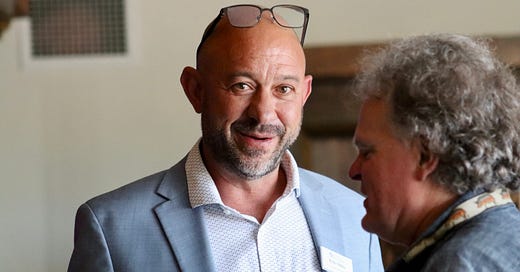




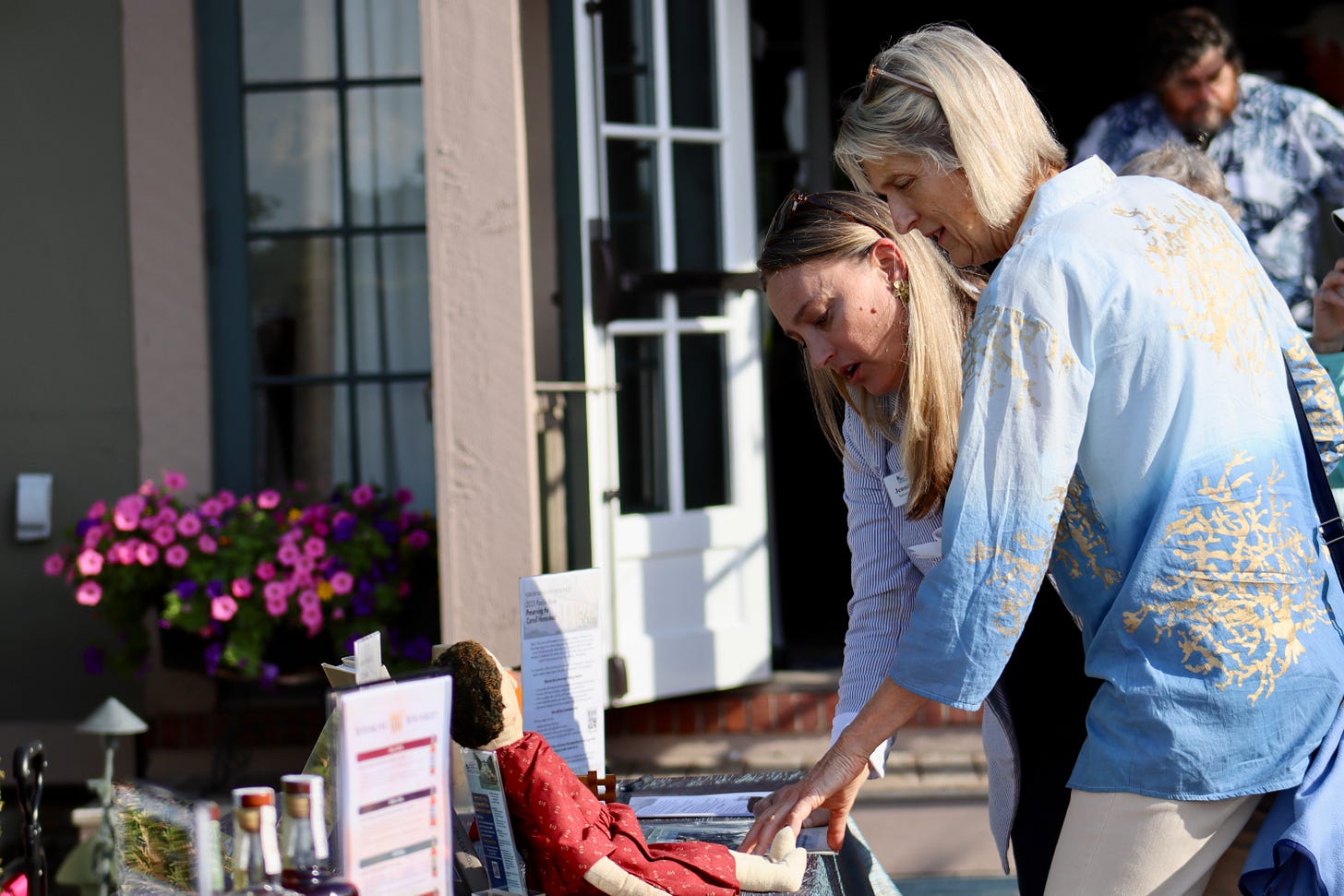

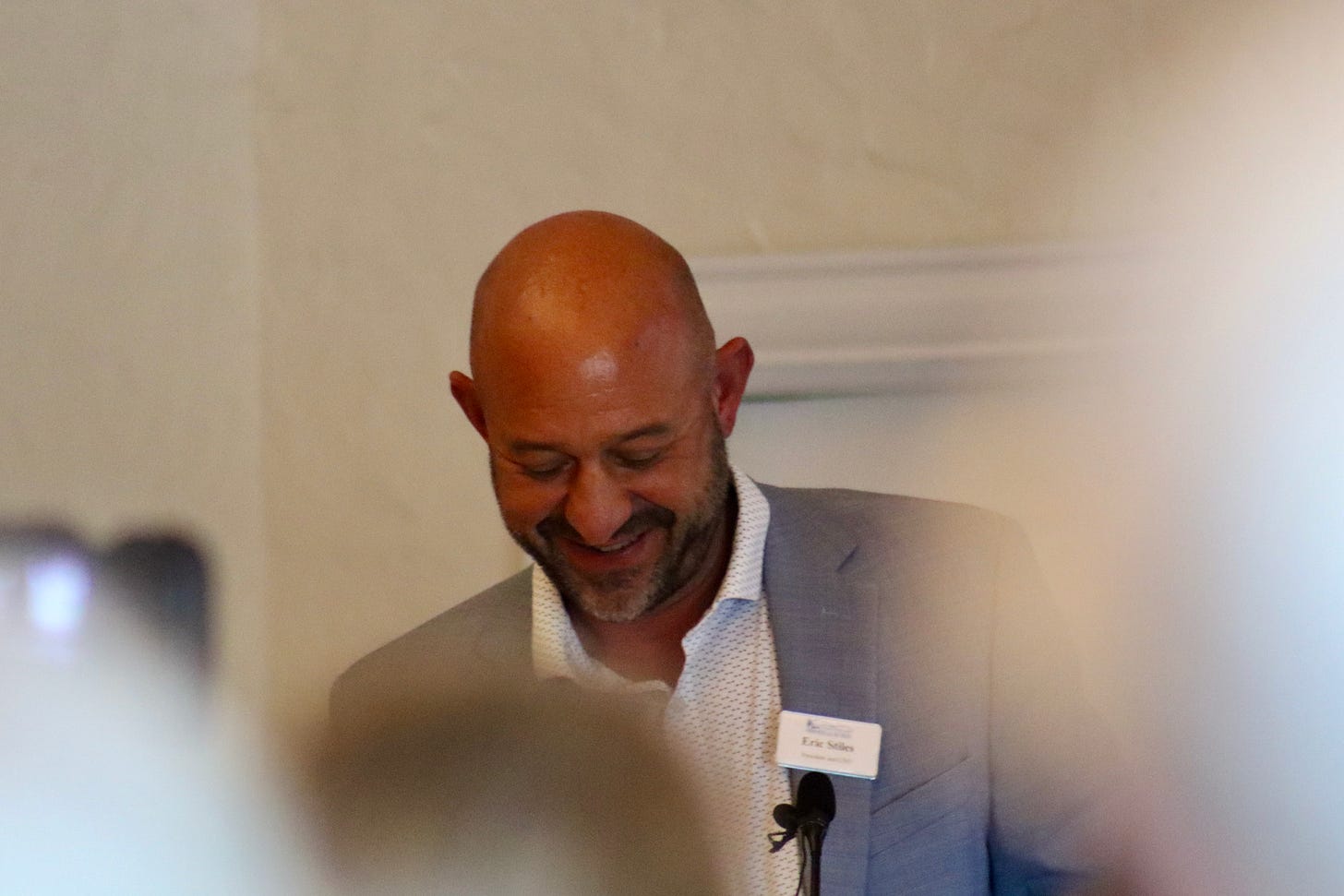
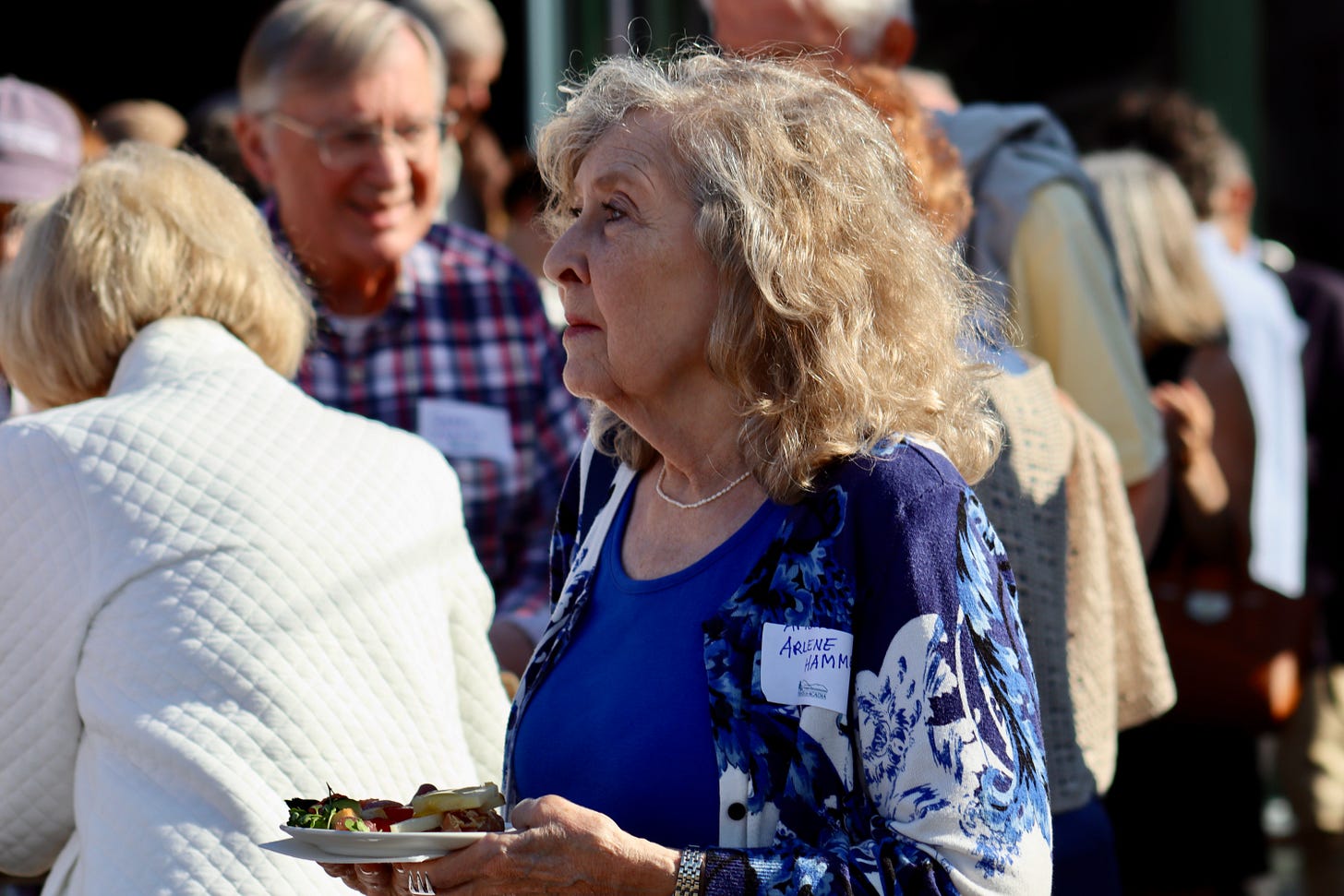
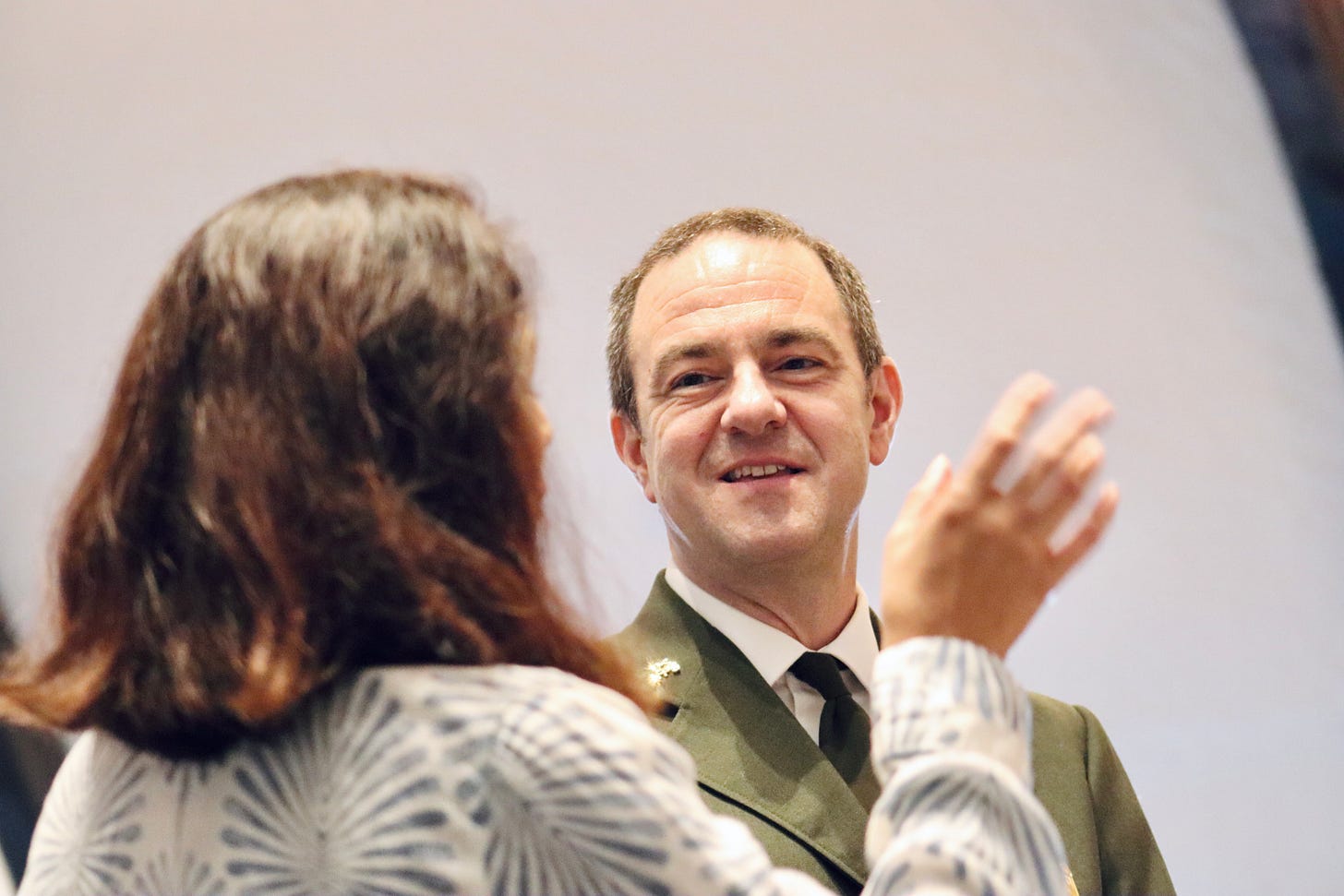
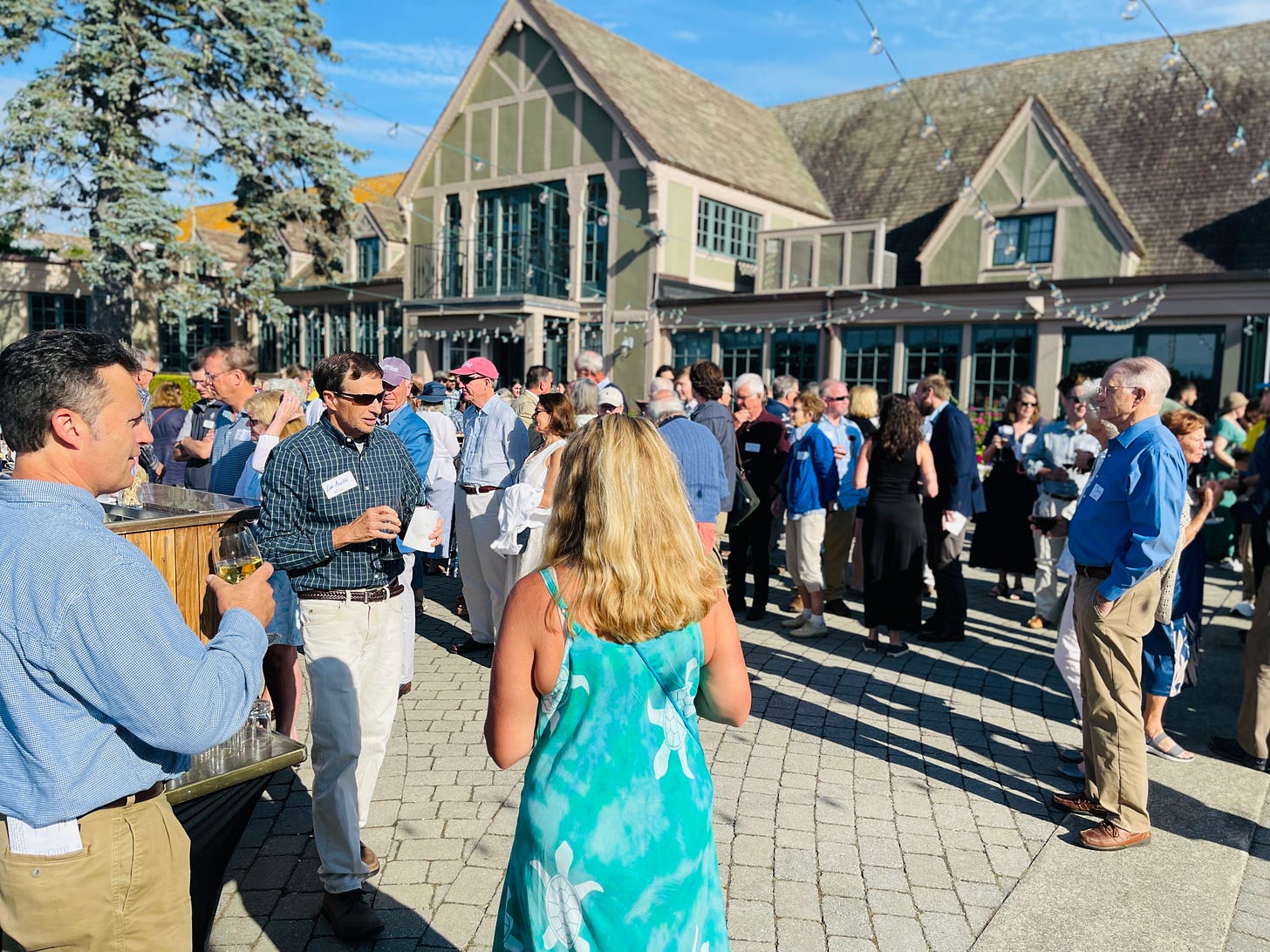
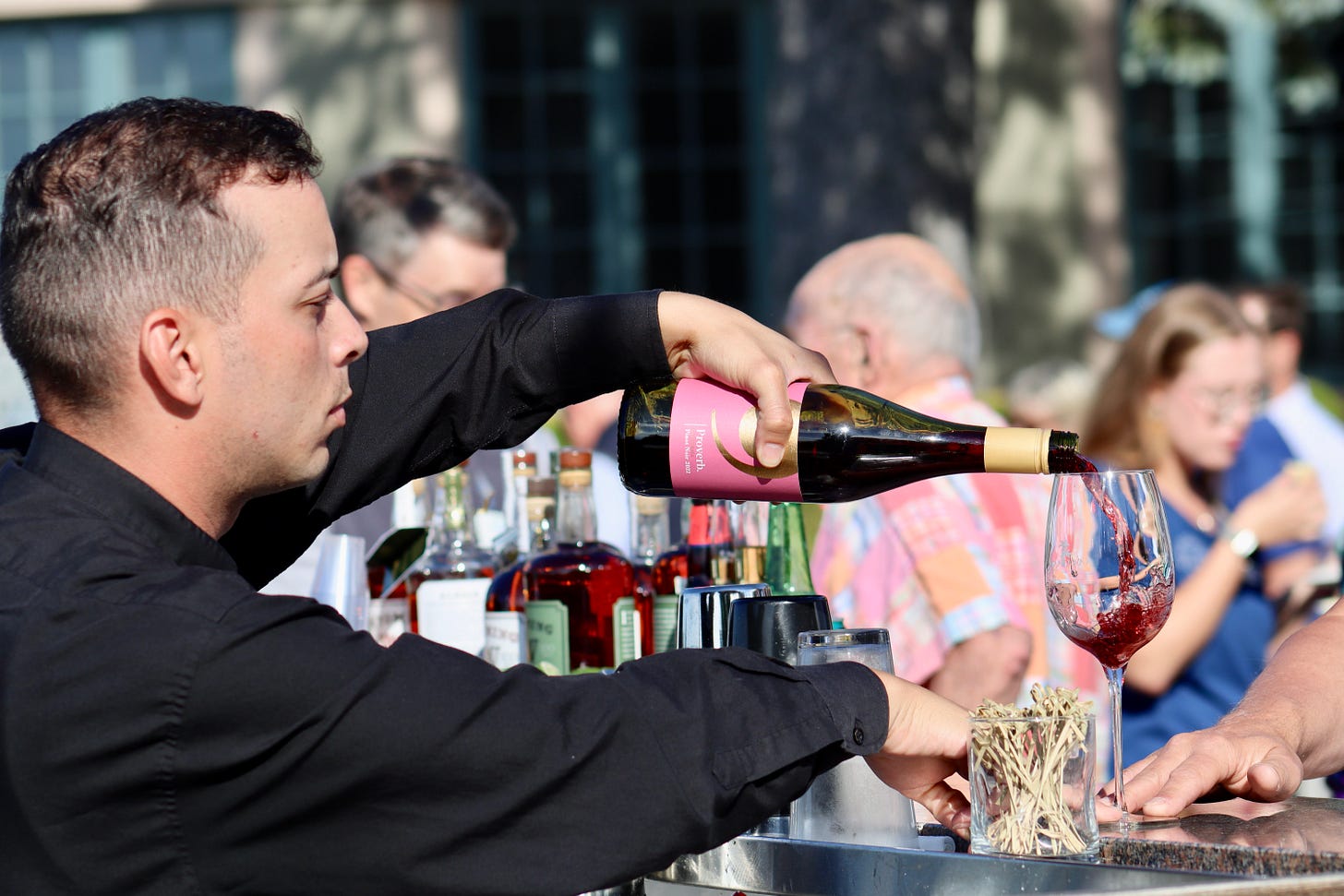

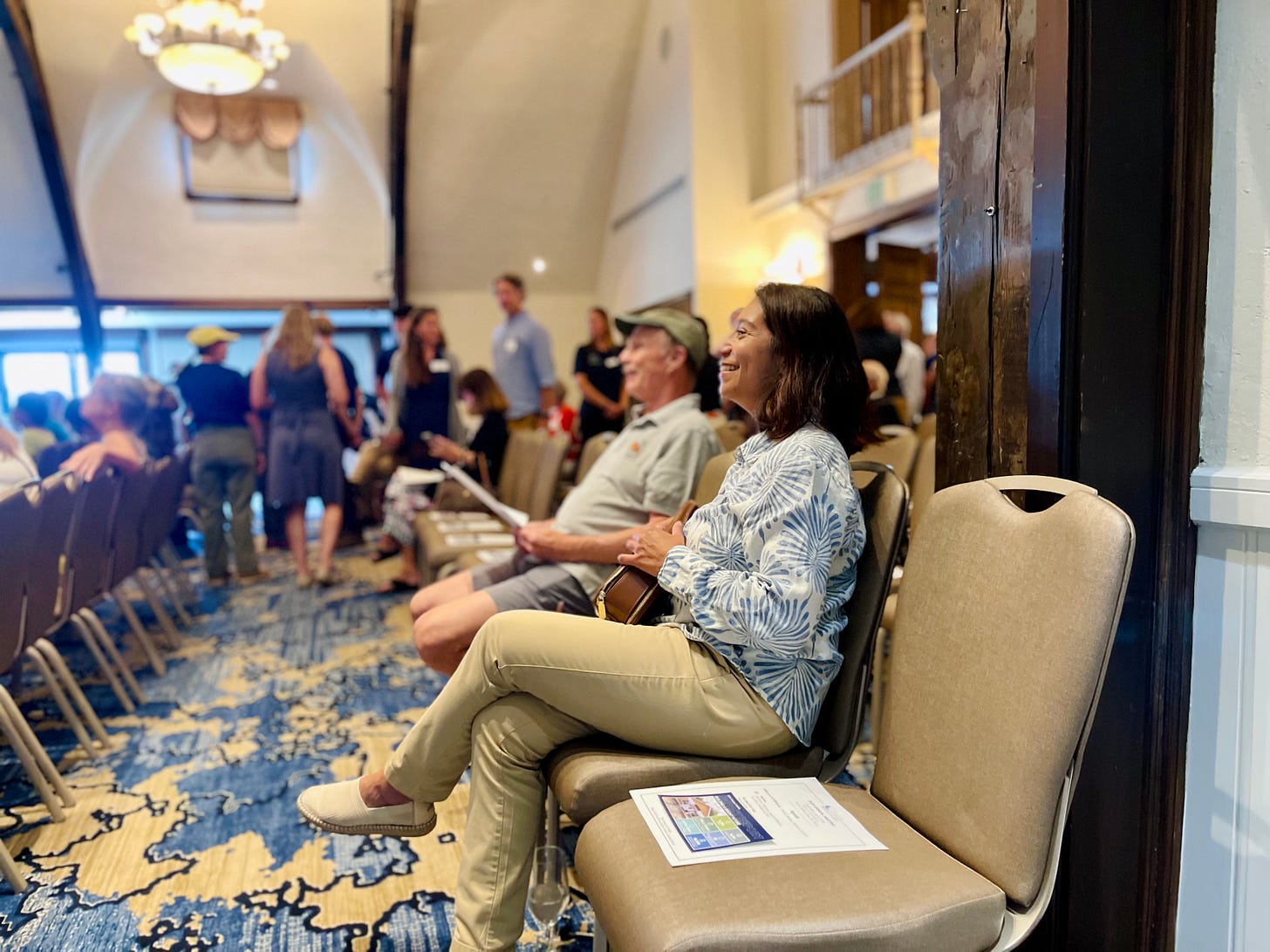



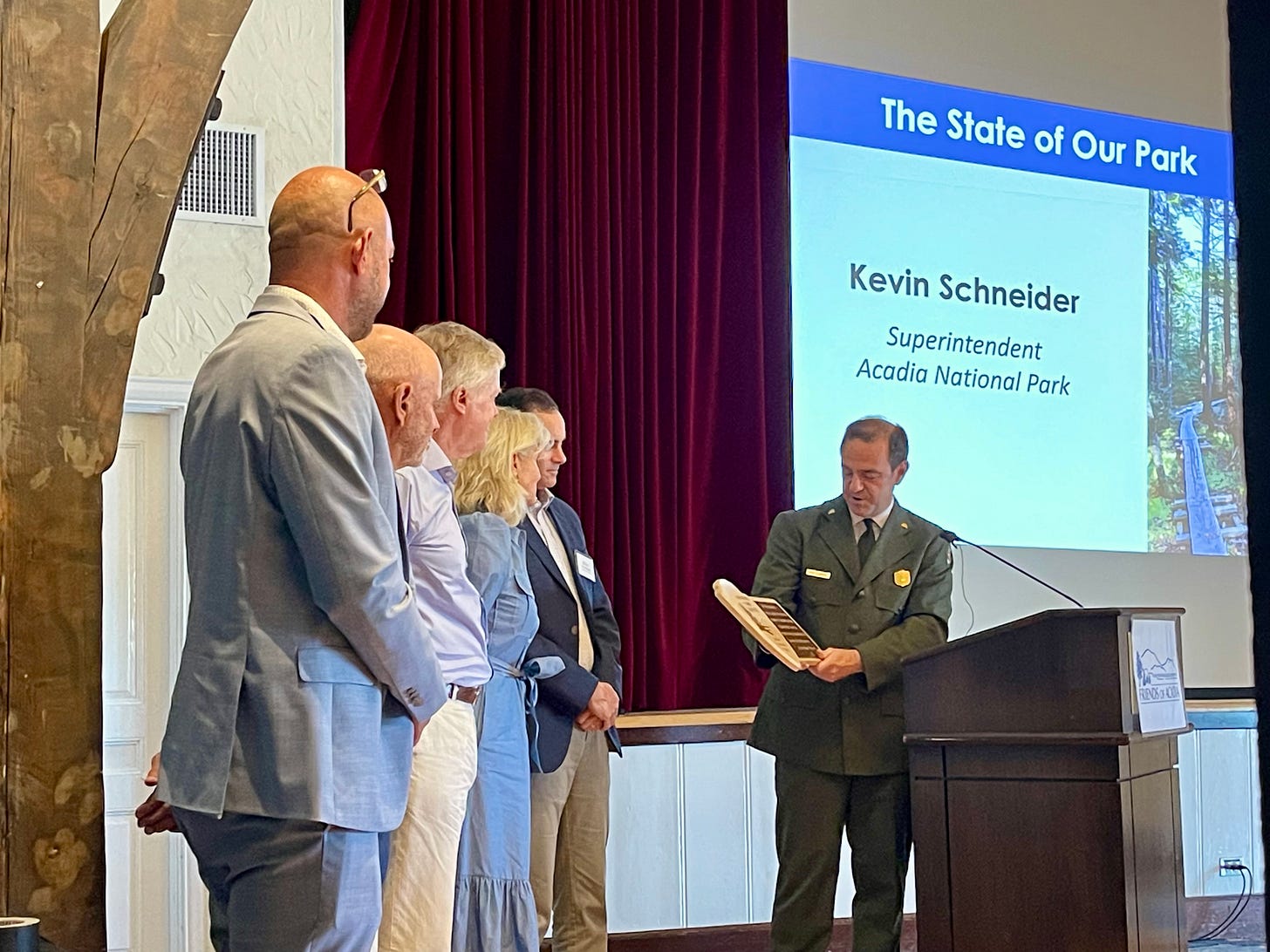

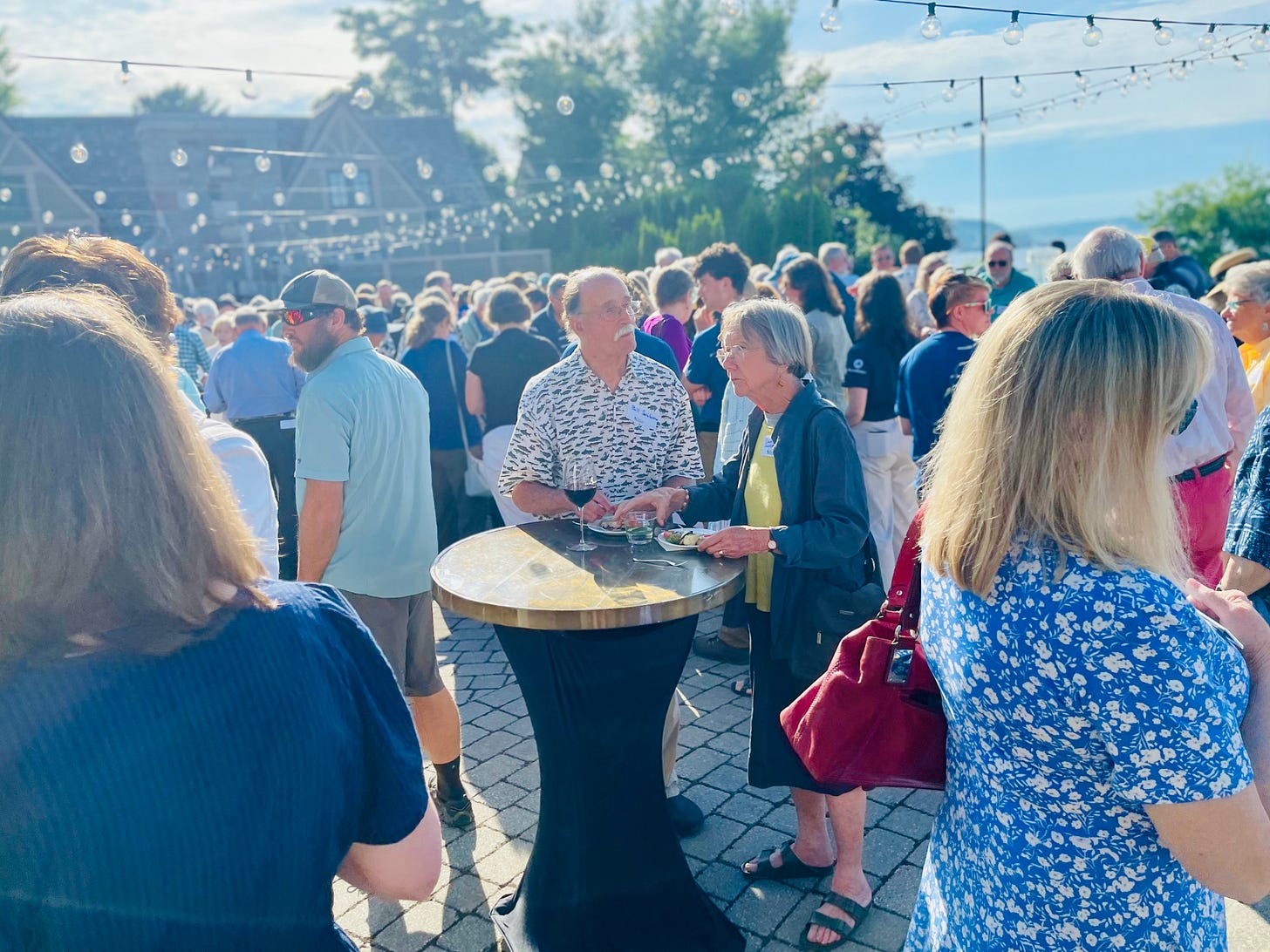


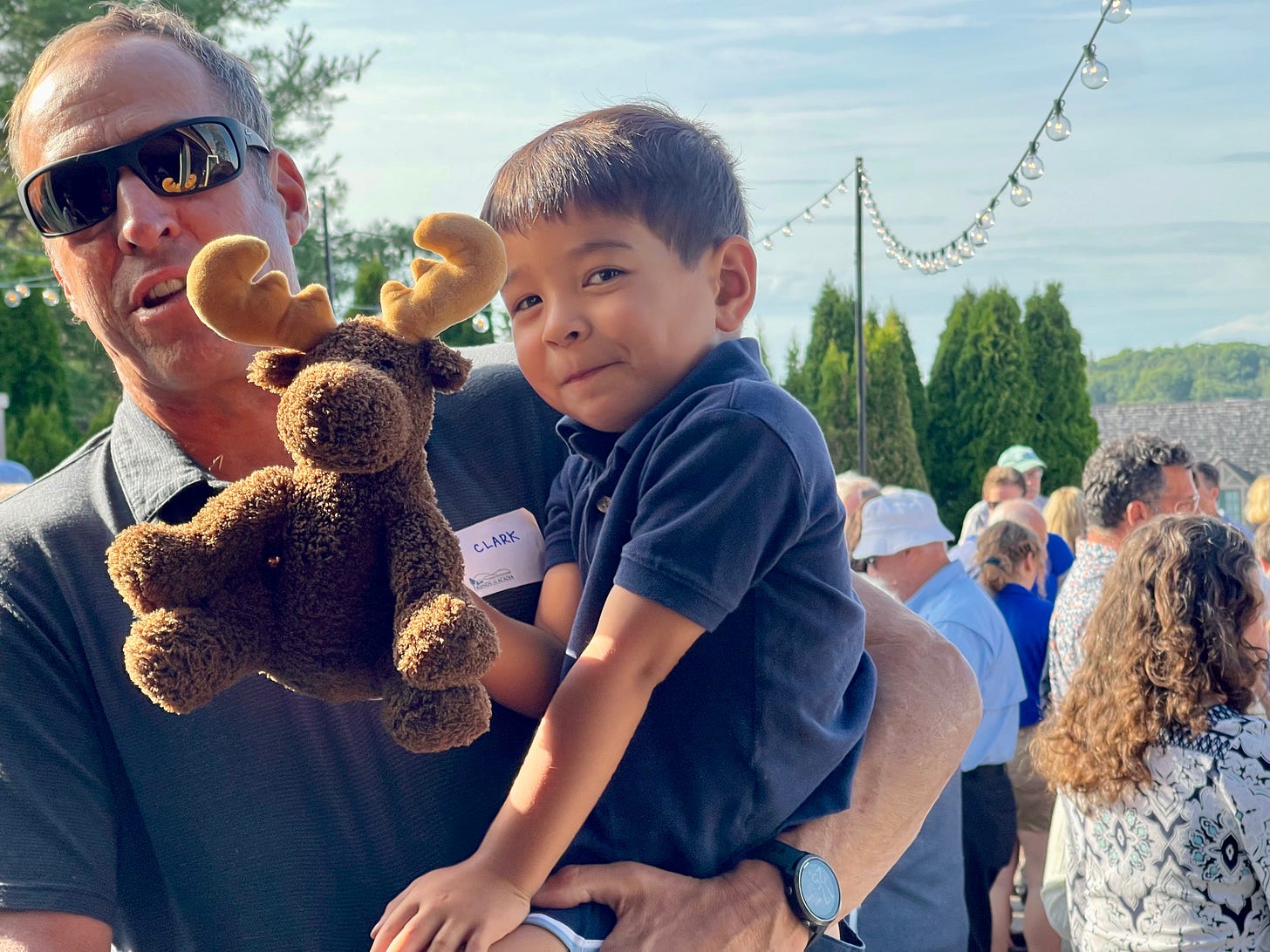


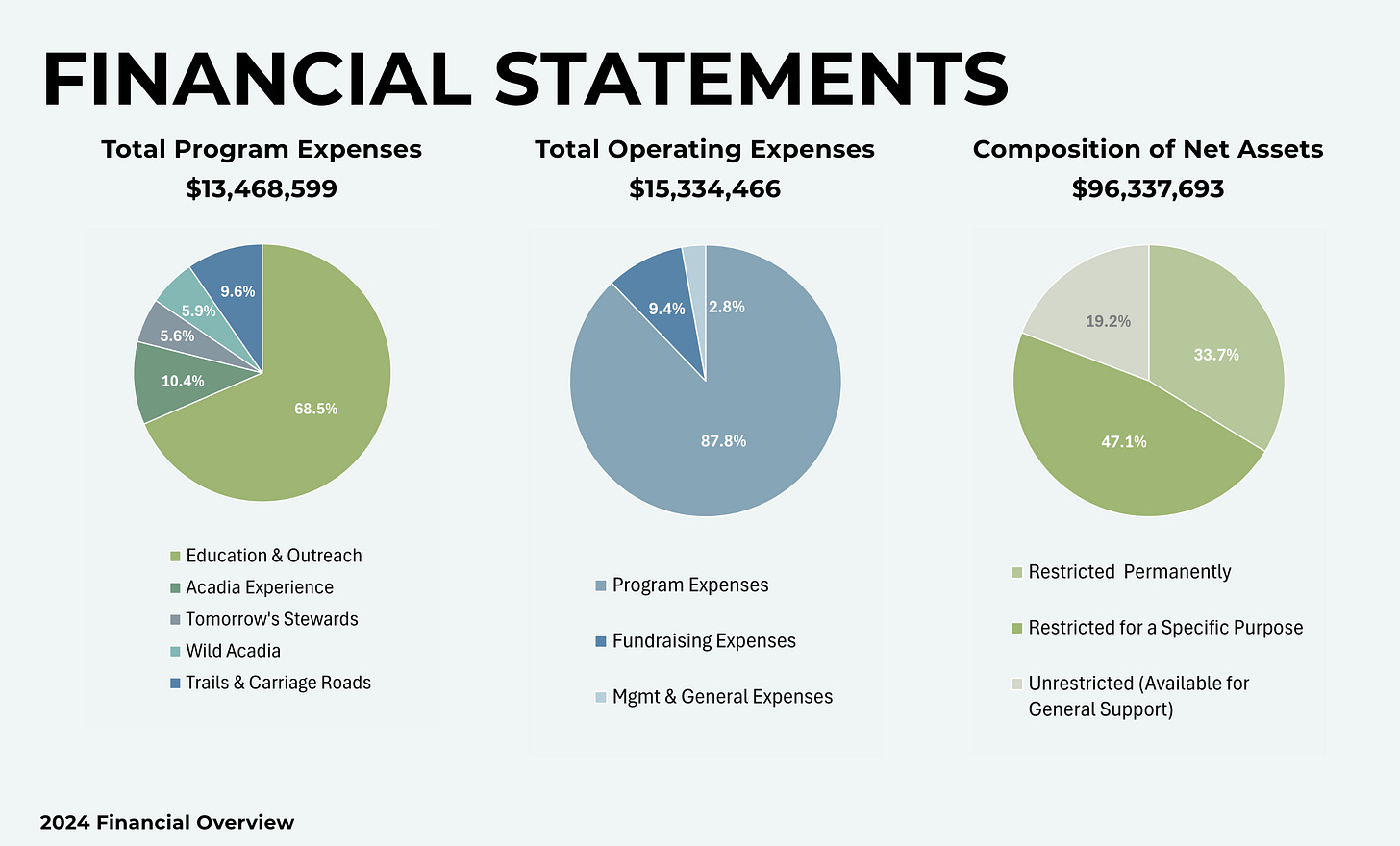
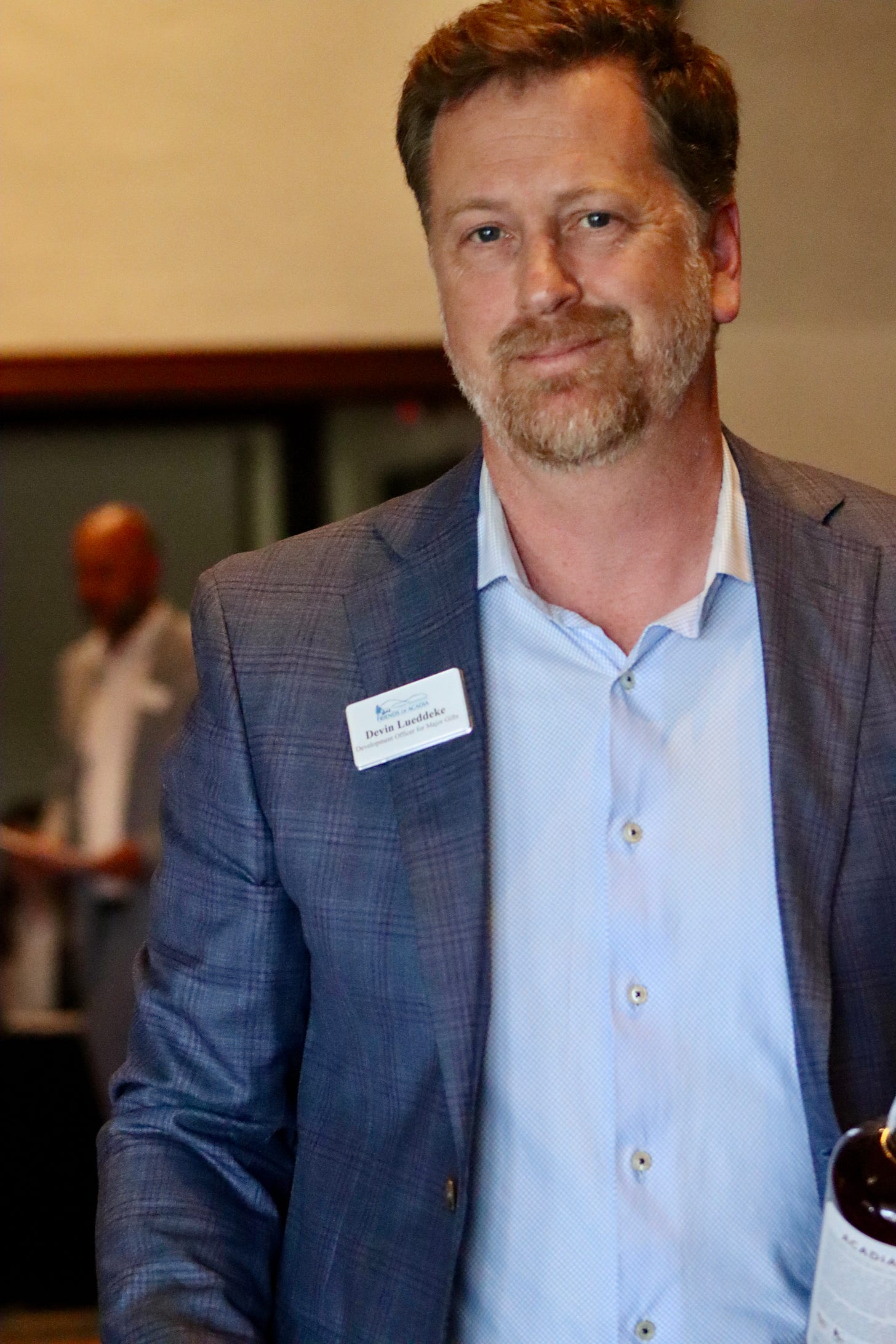

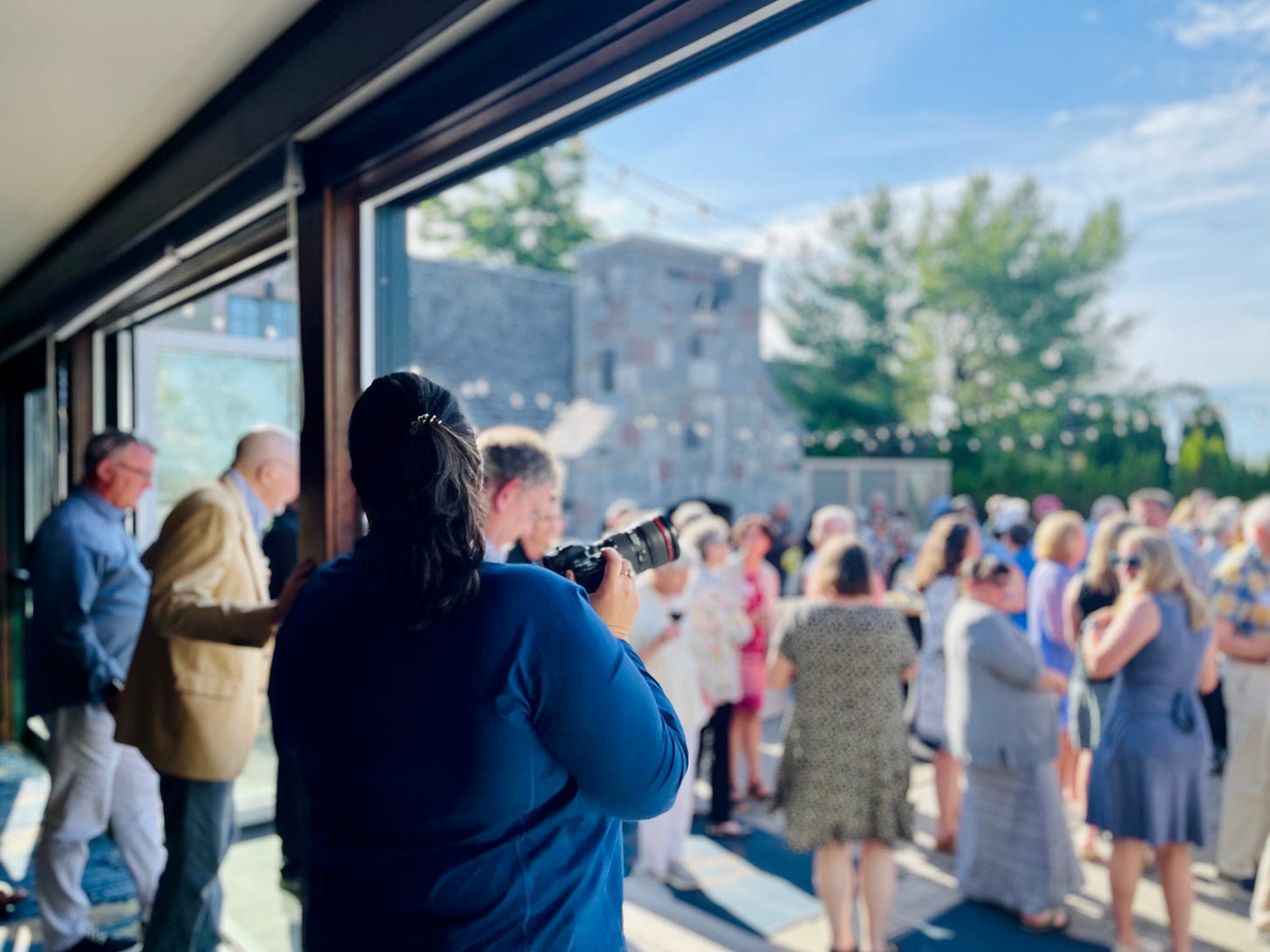
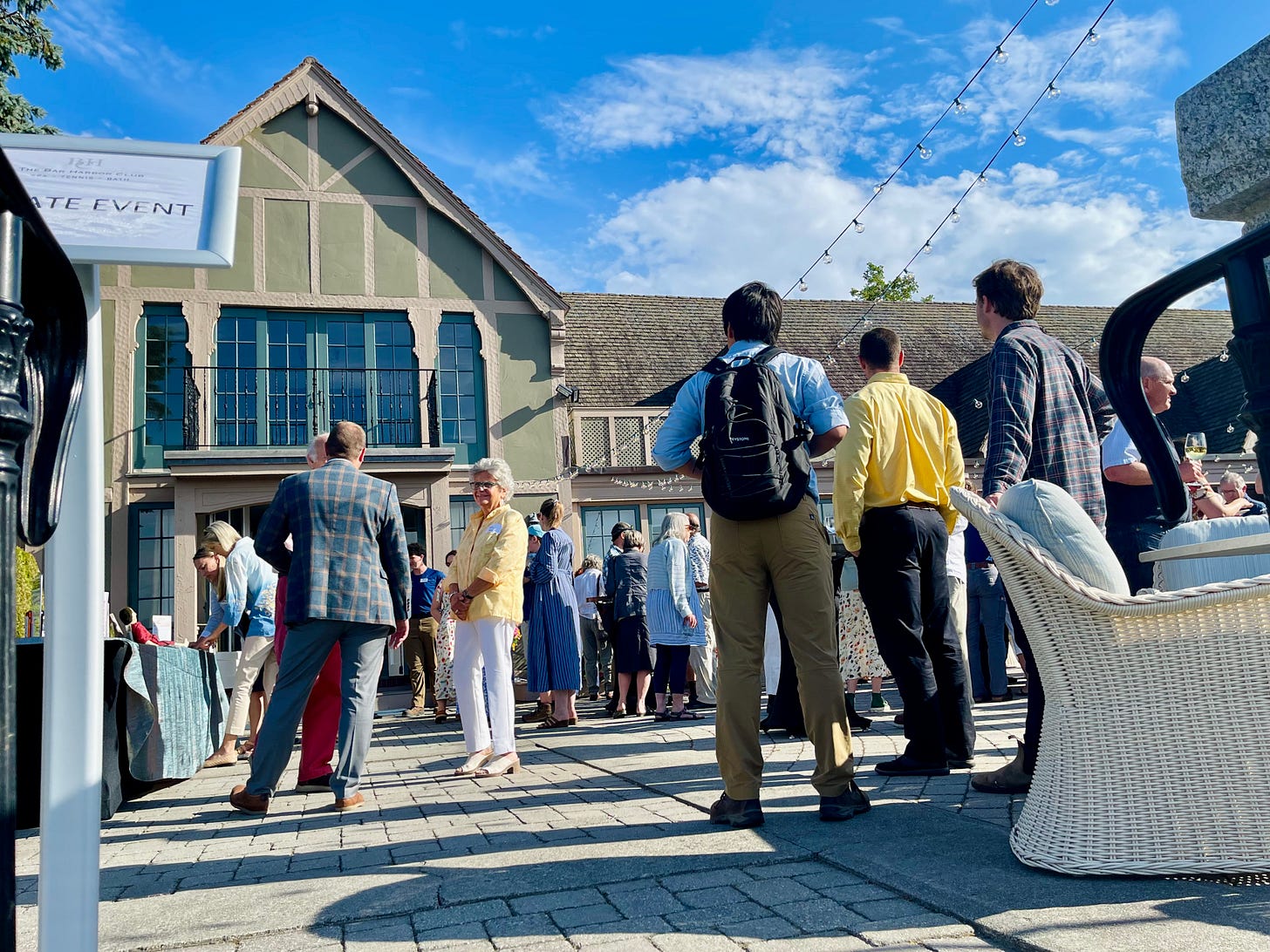
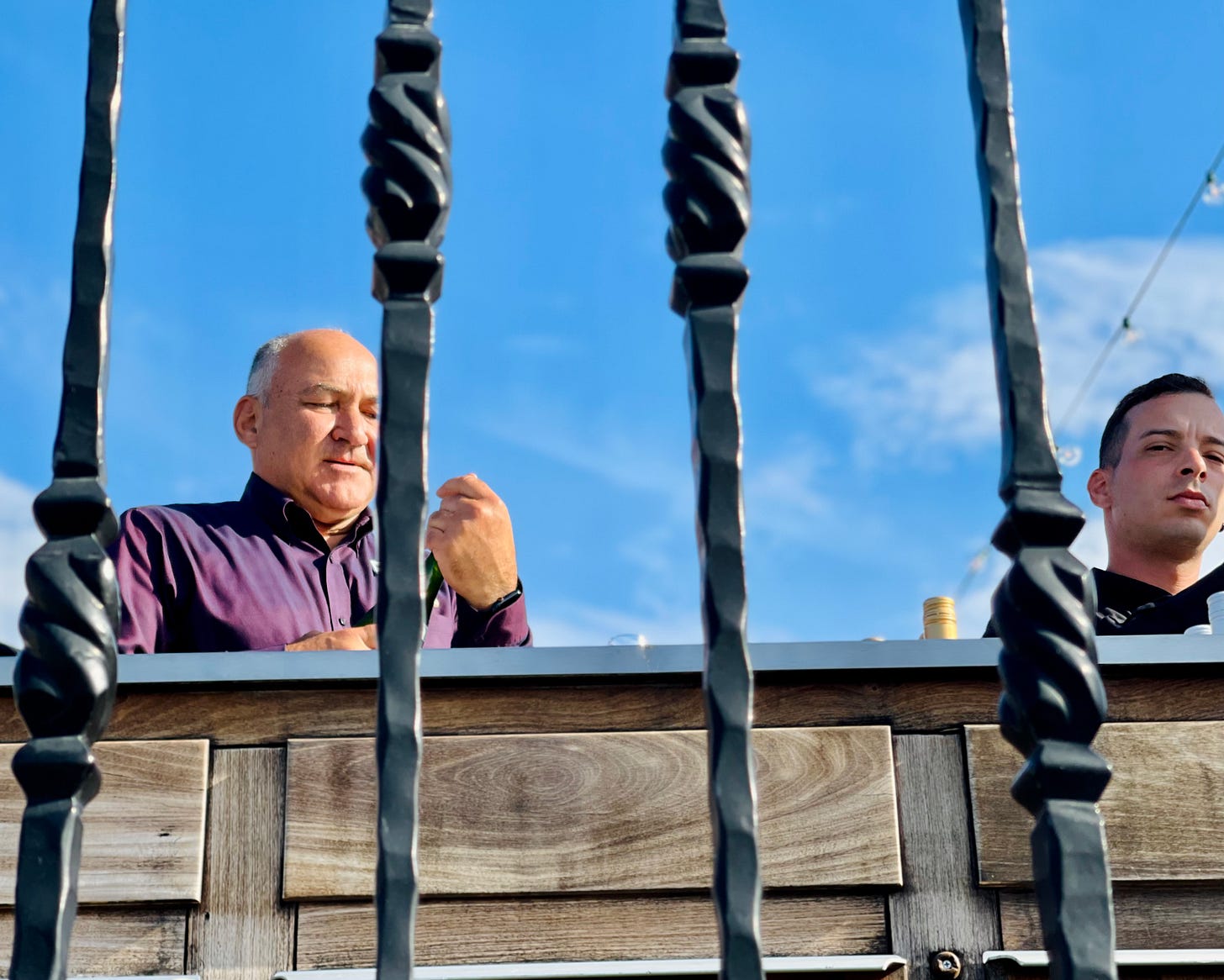

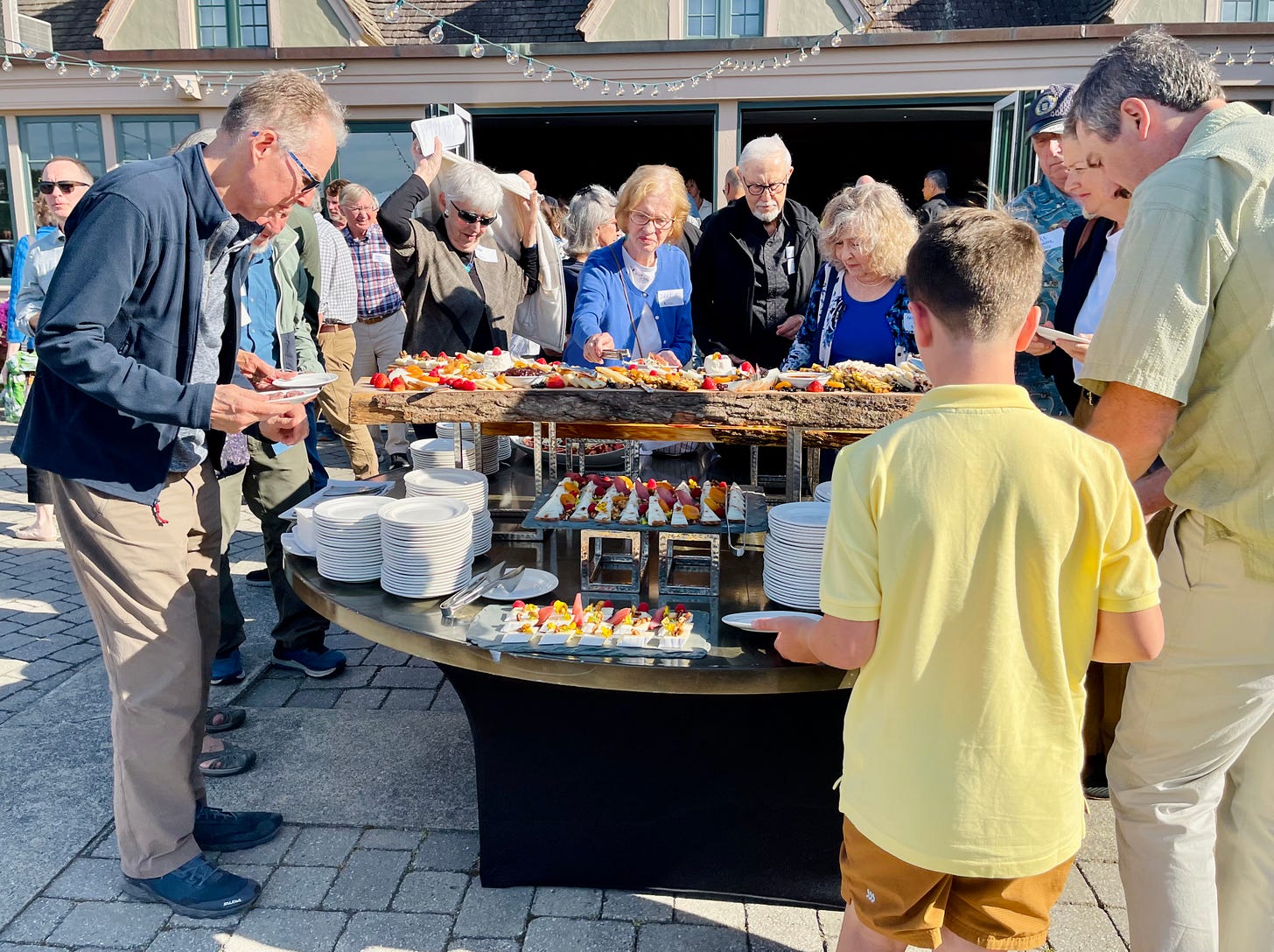


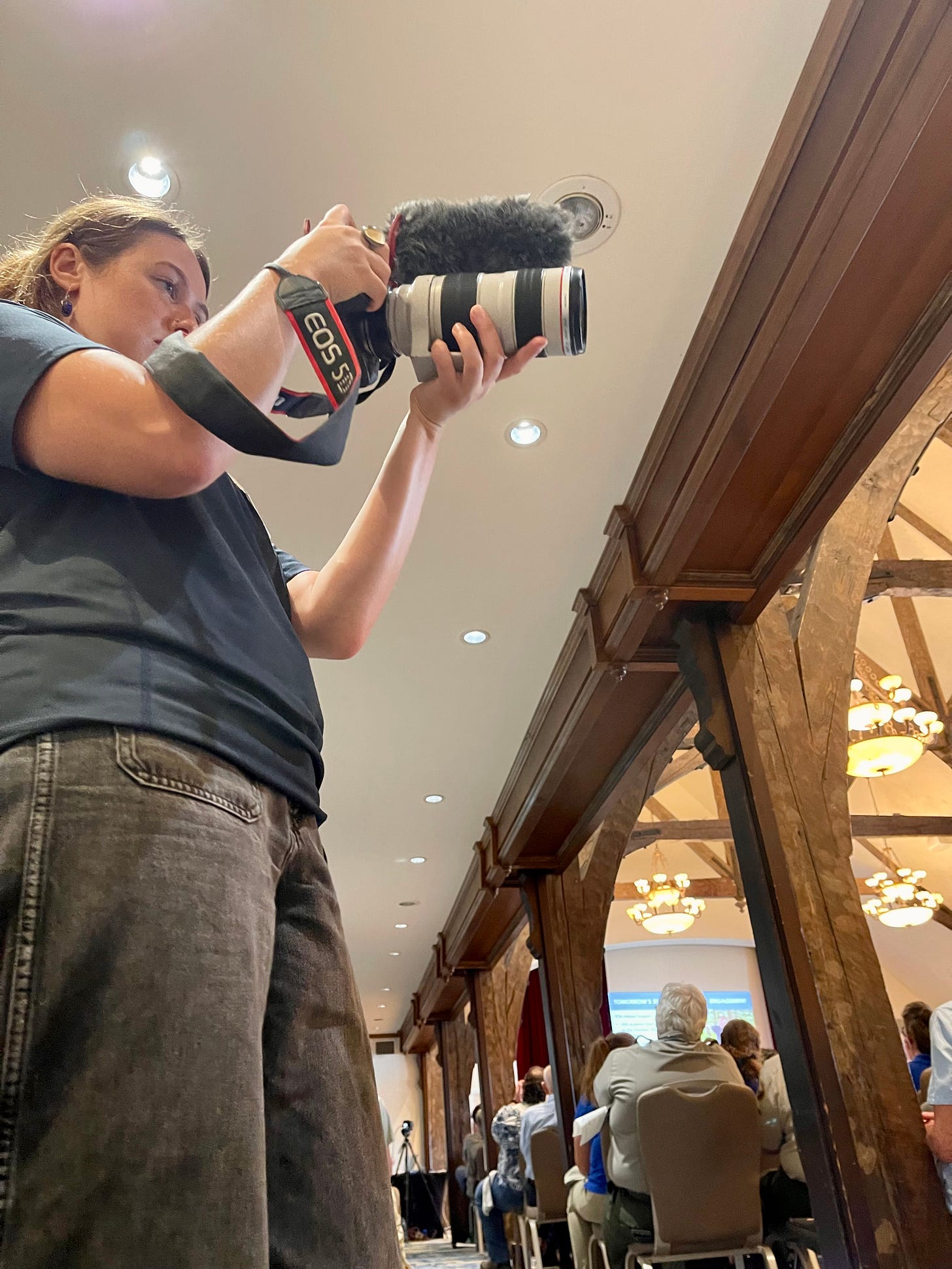

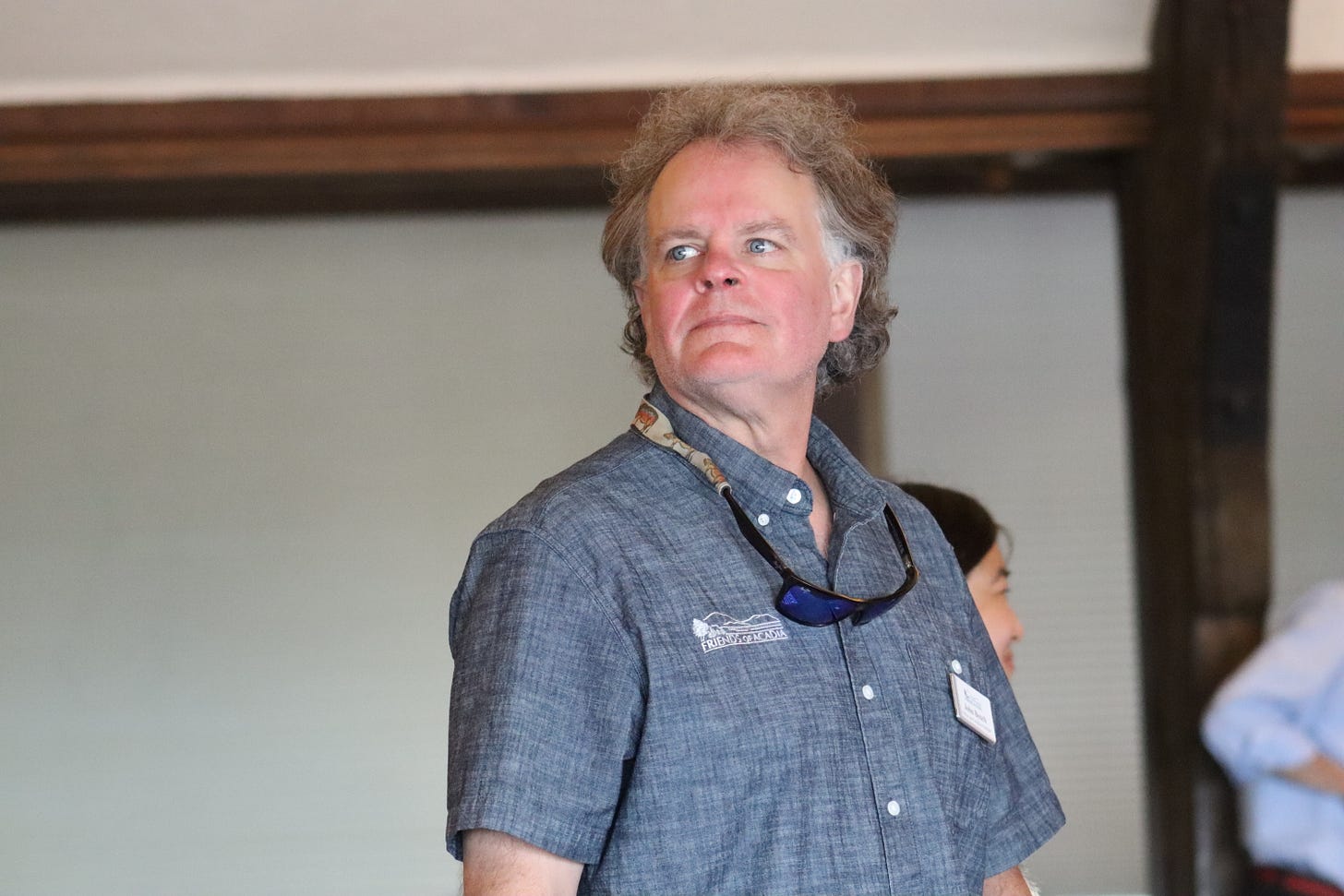
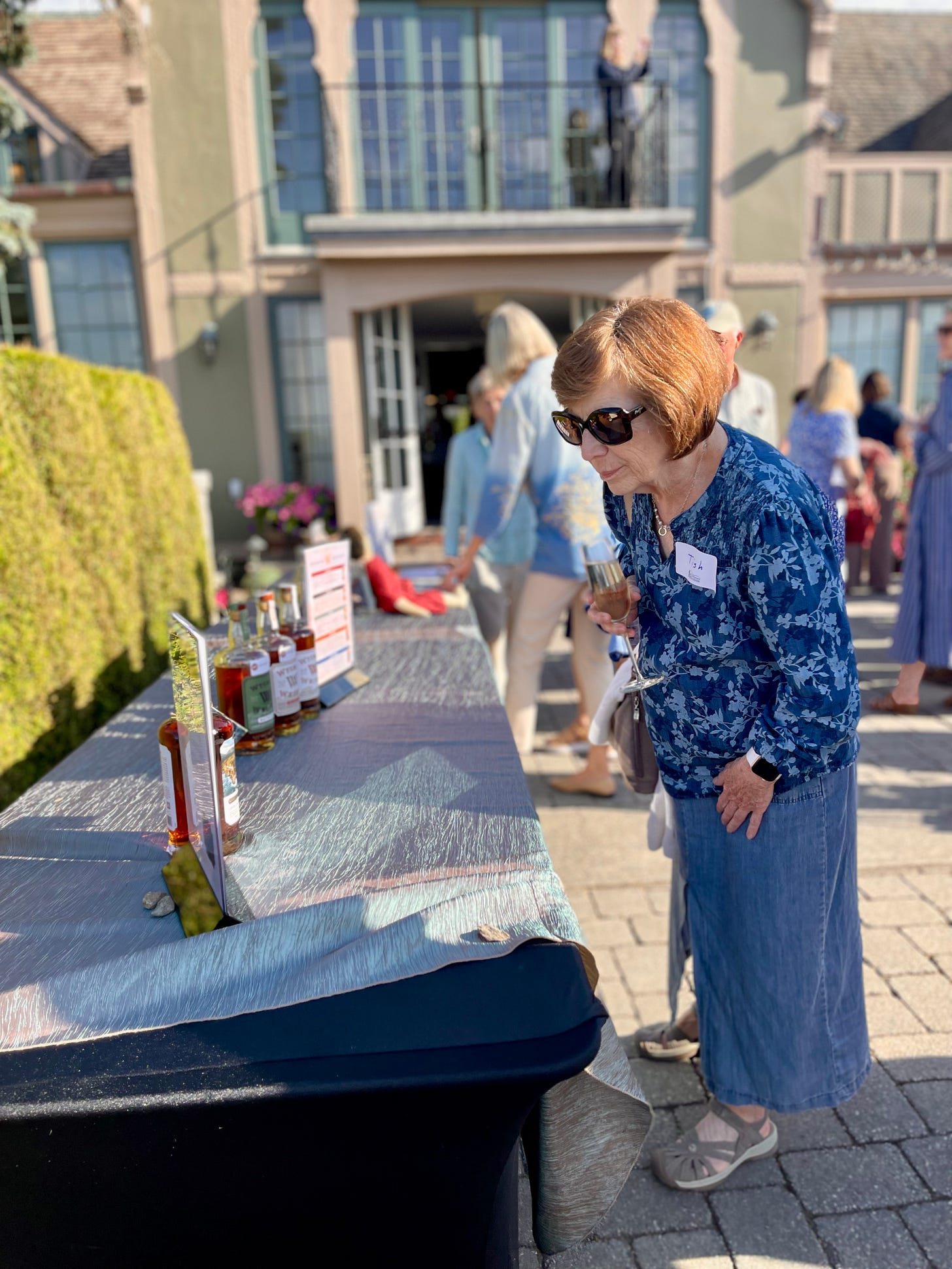

Hi Ms.Carrie Jones, I have been an off/on member of FOA for more than 20yrs.I’m aware that FOA has helped Acadia and the town of Bar Harbor,so, I don’t want to read as hypocritical.The photos of these FOA events,over the years,don’t come off very well.When you look quickly at these photos,they really have never changed over the years.There must be another side to FOA.